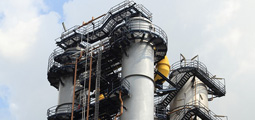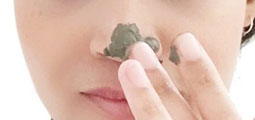What is Bentonite?
In very simple words Bentonite is a clay belonging to the smectite family mainly composed of montmorillonite and originated by volcanic ashes that sedimented into different areas and underwent hydrolyzation processes by different kinds of waters and consequently enriching in Ca or Na or Mg or K or H and so giving origin to Na+ Bentonite – natural sodium bentonite – or Ca++ Bentonite – calcium bentonite – or H+ bentonite – acid bentonite.
The weather changes bring about a cellular characteristic like popcorn or a frothy structure around because of swelling and shrinking on wetting and drying. The bentonite has a waxy appearance whereas bentonites formed from volcanic ash gives it a hard structure. Bentonite in India, Gujarat has a large amount of bentonite deposits. Almost three fourth of the bentonite deposits are in Bhavnagar and Kutch districts in Gujarat. As many as 162 leases are in kutch and the rest in Bhavnagar. The formation of bentonite here is associated here with the deccan trap rocks and is also confined to alteration of ash beds. Bentonite mostly occurs in oval shaped bodies 3 to 10m thick covered by a residual layer of 1.5 to 3m. The soil is sticky and gives a frothy feel.

However being a versatile mineral it has a wide range of industrial and consumer applications. Drilling fluids for oil, gas, mineral and water exploration binding agents for foundry and iron ore palletisation operations, main raw material to beauty products, consume a large amount of bentonite each year.






